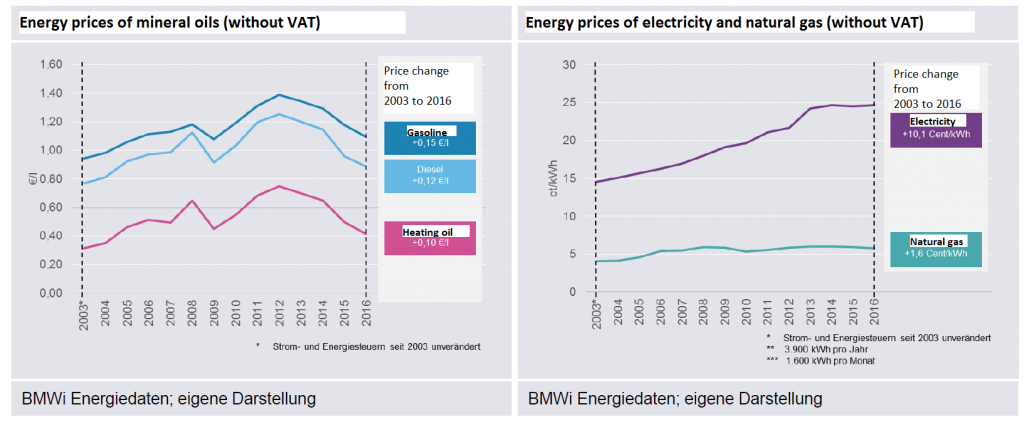A fundamental study by the think tank Agora Energiewende has examined the tax and levy system in the German energy market. The result: Imbalance of the energy price benefits climate-damaging energy carriers.

The study “New price models for energy” by Agora Energiewende published in April 2017, clearly shows what the next step or the next large construction side towards a transition to a climate-friendly energy system entails, namely a reform of the government regulated surcharges, taxes and levies on top of the energy prices.
Energy prices are very different according to energy sources. For instance the governmental surcharges (taxes, charges and levies) per kilowatt hour for electricity are at 18.7 cent on average. That makes 75-80 percent of the price components for most consumers (households) while other energy carriers are charged much less. In the case of petrol it is only 7.3 cents/kWh, for diesel 4.7 cents/kWh, for natural gas 2.2 cents/kWh and for heating oil only 0.2 cents/kWh. It is thus hardly surprising that electricity (which is becoming increasingly decarbonized by the expansion of renewable energies and thus more climate-friendly) is much more expensive in comparison to other energy carriers and its use in other sectors of the energy industry like transport and heat is less common.
According to Agora Energiewende the high implicit CO2 burden of electricity at 185 EUR/t CO2 allows climate-damaging fossil energy carriers to be systematically cheaper and the current system of governmental surcharges prevents a cost-efficient energy transition. Although Germany is at the top of the EU in terms of electricity prices, in terms of prices for gas and heating oil the country ranges in the middle or even the lower quarter.
High levels of surcharges on electricity also prevent price signals from the wholesale market from reaching consumers and them responding to those signals. High prices for electricity and low prices for fossil energy carriers also hinder the use of load management, e-mobility, power-to-x technologies and efficient building renovation.
Agora Energiewende sees the urgent need for a reform of network charges, taxes, levy systems, whereby a CO2-oriented reform of electricity and energy taxes, a polluter-pays principle that also takes into account aspects of distributive justice as financial basis for the energy grids (higher share of basic and capacity price) as well as the introduction of dynamic fees for the remaining tariff components. Agora director Patrick Graichen said: “If taxes and levies on electricity, heat and transport permanently stay in such an unbalanced manner, the energy transition cannot succeed”, and thereby passes on the baton to the next government.




